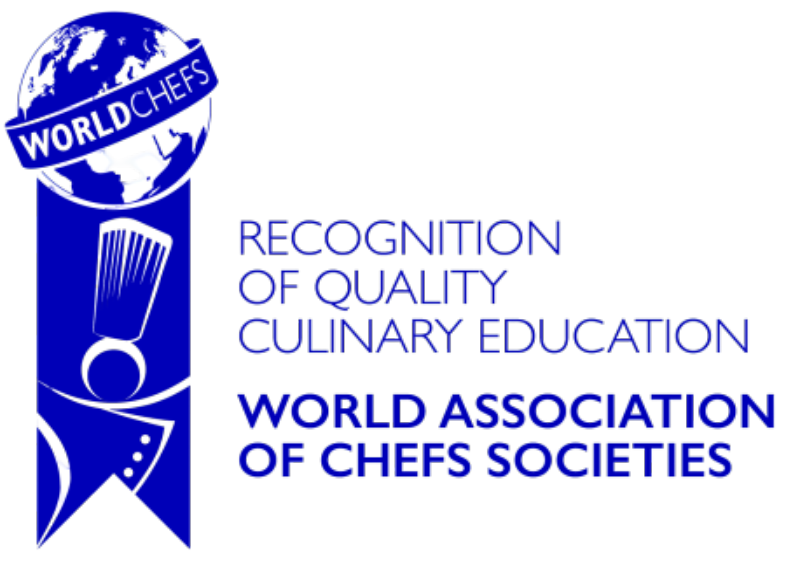In accordance with federal and state laws and regulations, Detroit Institute of Gastronomy does not discriminate based on disability in the recruitment and admission of students, the employment of faculty and staff, and the operation of any of its programs and activities. The Director of Education is designated as the coordinator for compliance with Section 504 of the Rehabilitation Act of 1973 and with the Americans with Disabilities Act of 1990. The ADA provides a comprehensive civil rights protection for “qualified individuals with disabilities”. Students with a disability should contact the Detroit Institute of Gastronomy Concierge Team, for information and assistance with obtaining accommodation services.
A disability is defined by the Americans with Disabilities Act as any condition that substantially limits one or more of life’s major activities. “Major activities” include such functions as self-care, performing manual tasks, walking, seeing, hearing, speaking, breathing, learning, or working. The condition can be permanent or temporary.
Students with disabilities will be responsible to self-disclose their disability and the need for accommodations to the Concierge team. Documentation provided will need to be from a professional in the field, who is properly licensed or certified in the field appropriate for the diagnosis of the disability claimed and not more than 3 years old from the date of the request. Requests for accommodations must be received thirty (30) days prior to entering the desired quarter if reasonable accommodations are requested that require equipment, resources, material, or personnel. Requests for accommodations totaling over $500.00 may require a 60-90-day notice.
A qualified individual with a disability is one who meets the essential eligibility requirements for the program or activity offered by a public entity. The essential eligibility requirements will depend on the type of service or activity involved. The ability to meet specific skill and performance requirements may be “essential”.
Recommendations made by the professional will be incorporated as appropriate into the academic advisement plan for the student. Accommodations for placement testing are available and must be planned for in a timely manner, to plan accordingly for the targeted quarter to attend classes.
ADA Accommodations for American Culinary Federation (ACF) Testing #
A testing candidate with a disability, as defined by the Americans with Disabilities Act, may petition the ACF in writing for reasonable accommodations. The candidate should submit the Request for Special Examination Accommodations form along with documentation of related disability or need at least 45 days prior to the requested examination date. The ACF in conjunction with the Test Site Administrator will consider all requests and attempt to accommodate reasonable requests for accommodation as it relates to the practical exam.
American Culinary Federation’s (ACF) Legal Opinion related to ADA Policy #
“The Certification Commission of the American Culinary Federation (ACF) provides reasonable accommodations in accordance with the Americans with Disabilities Act (ADA) for individuals with documented disabilities who demonstrate a need for accommodation. In accordance with the Americans with Disabilities Act, ACF does not discriminate against individuals with disabilities in providing access to its examination program.
ACF will provide, without cost to the candidate, reasonable accommodations designed to facilitate equal access to its certifying examinations for those candidates whose documentation supports such a determination. The purpose of documentation is to validate that an applicant for test accommodations is covered under the ADA as a disabled individual. Comprehensive information by a qualified professional is necessary to allow ACF to understand the nature and extent of the applicant’s disability and the resulting functional impairment that limits access to its examinations. Documentation also
allows ACF to provide appropriate accommodations for such a disability.
In no case will accommodations be provided which would compromise the examination’s ability to test accurately the skills and knowledge it professes to measure. Similarly, no auxiliary aid or service will be provided that would fundamentally alter the examination. The ACF practical exam meets the exception as described in Section 36.309 of the ADA Regulations. In sum, a certification exam can require that a certain skill be demonstrated, if necessary, to the performance of the profession that is the subject of the certification, even if an applicant’s disability prevents the applicant from successfully demonstrating that skill. Thus, it is permissible under the ADA for ACF to institute a policy stating that successful completion of the practical cooking exam is an unequivocal prerequisite for chef certification.
ACF strictly adheres to a policy of confidentiality and does not disclose names of applicants with disabilities or information concerning the application or accompanying documentation. Arrangements for persons with disabilities will be provided upon approval.
However, for those applicants who, for example, are unable to hold kitchen implements, it is extremely difficult to come up with an auxiliary aid that could potentially assist such an applicant without fundamentally altering what the practical exam is designed to test (i.e., cooking skills). Similarly, while an applicant with a contagious disease such as Hepatitis may be able to physically prepare food, there is simply no way to fully and accurately assess his or her performance without taste testing the food that has been prepared, and this would raise serious health concerns.
In sum, a certification exam can require that a certain skill be demonstrated, if necessary, to the performance of the profession that is the subject of the certification, even if an applicant’s disability prevents the applicant from successfully demonstrating that skill. Thus, it is permissible under the ADA for ACF to institute a policy stating that successful completion of the practical cooking exam is an unequivocal prerequisite for chef certification.” Submitted by Pillsbury Winthrop Shaw Pittman, LLP





